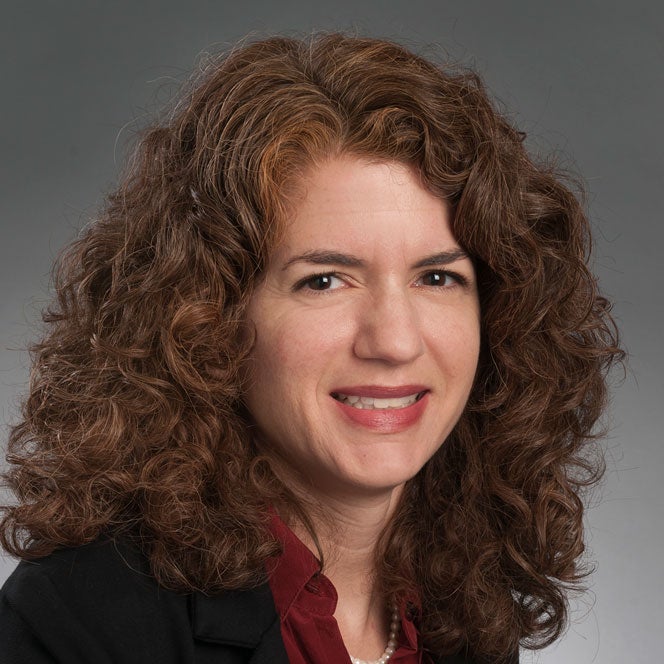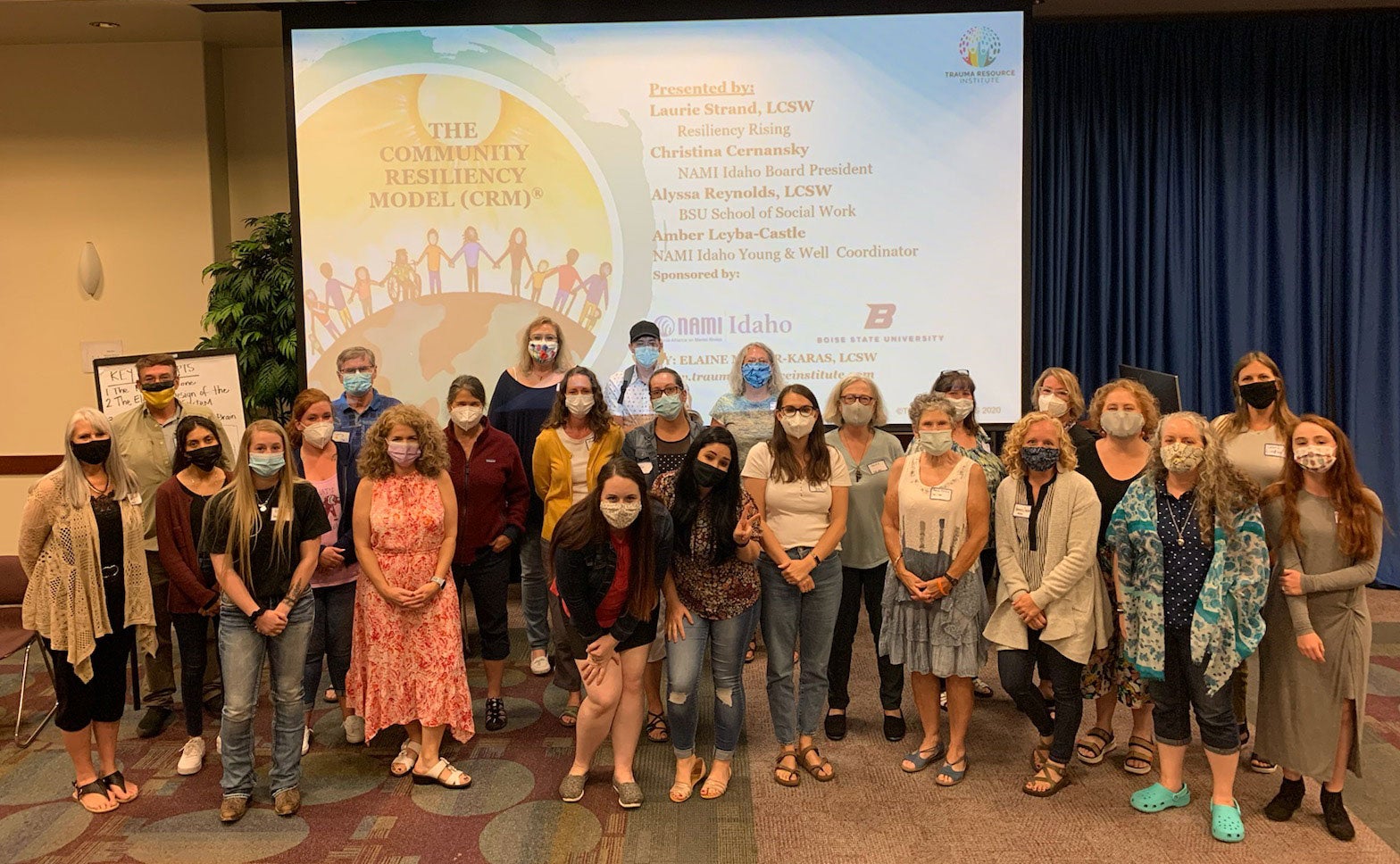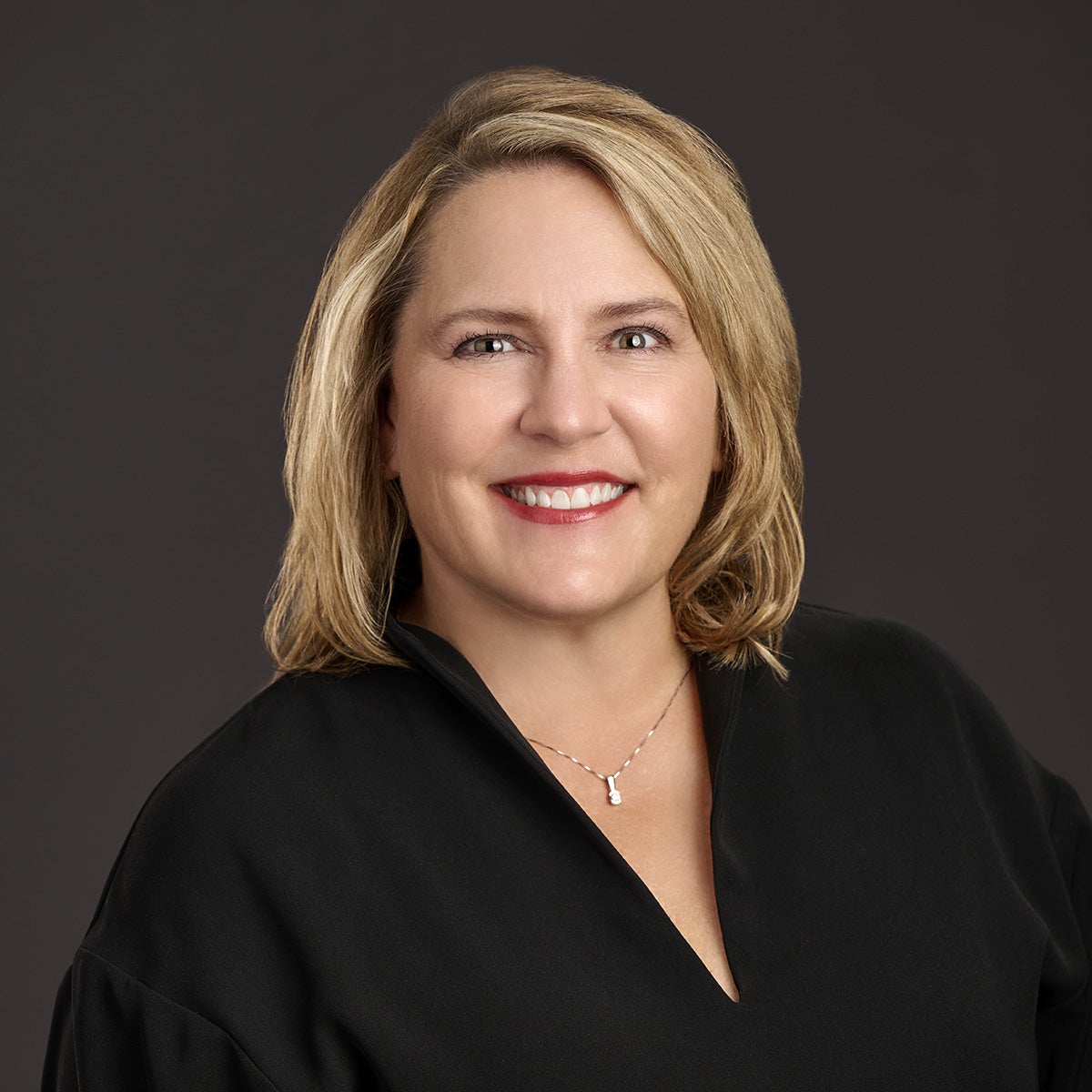
Alyssa Reynolds, clinical assistant professor in the School of Social Work, is co-facilitating multiple Community Resiliency Model workshops for the Idaho chapter of the National Alliance on Mental Illness, the Idaho Society for Clinical Social Workers, and Boise State this fall and spring.
Resilience, according to the American Psychology Association, is the process of adapting well to or bouncing back from difficult experiences, including family and relationship problems, serious health problems or workplace and financial stressors.
By using the community resiliency model individuals can understand the biology of traumatic stress reactions and learn specific skills to return the body, mind and spirit back to balance after experiencing traumatic events. The model educates individuals about their nervous systems and teaches easy-to-learn wellness skills for self-care as well as care for others. It uses a visual aid that helps individuals visualize being in their resilient zone, which is when individuals feel like their best selves and can handle life stressors.
This research-informed intervention educates individuals around the world about their nervous system and teaches easy-to-learn wellness skills to be used for self-care as well as to care for others. It takes on a public health focus by training community members to not only help themselves, but to help others within their wider social network.
Reynolds is a licensed clinical social worker and a certified community resiliency model facilitator. After hearing about the model from a colleague, Reynolds took a workshop facilitated by Laurie Strand of Resiliency Rising in June 2019.

“I was impressed with the model because of how accessible it was,” Reynolds said. “You don’t have to be a social worker to share the skills with others. I was interested in becoming a facilitator because I felt this was an easy-to-understand model that would benefit our community. You can learn about the basic skills in a one to two-hour training or a more in-depth all-day or two-day training. The skills are easy to use and understand. They can be used across the lifespan of children and adults with different literacy abilities.”
Before the COVID-19 pandemic, options to become a trained facilitator were limited and cost-prohibitive. However, in fall 2020 the Trauma Resource Institute created an online synchronous facilitator training program due to COVID-19. Reynolds and several other interested Idaho residents participated in the facilitator training in fall 2020 and Reynolds completed her certification to be a facilitator in April 2020.
“Community resiliency model techniques are useful for the increased stress we are all feeling during the COVID-19 pandemic,” Reynolds said. “You can learn how to bring your own nervous system into balance and then share those skills with others.”
Alyssa Reynolds
Reynolds and other local certified facilitators meet regularly to organize additional workshops to share these vital wellness skills around the state of Idaho. If you are interested in hosting a community resiliency model workshop of any length for your community, student club, department, school or other organization, please contact Reynolds at alyssareynolds@boisestate.edu to discuss options.
Become a donor to support the School of Social Work.
Inspired? Let's Chat!
-

Heather A. Jauregui, MSEd
Senior Director of Development